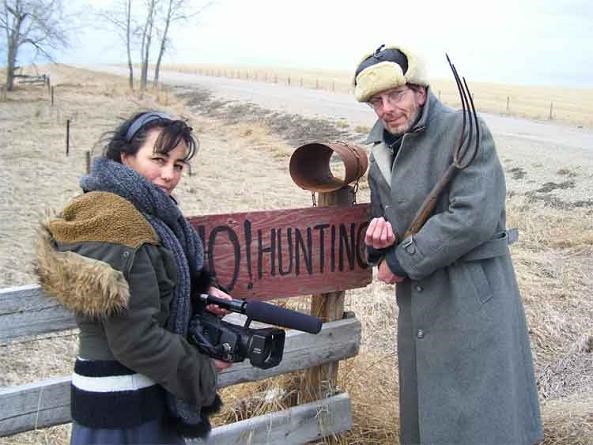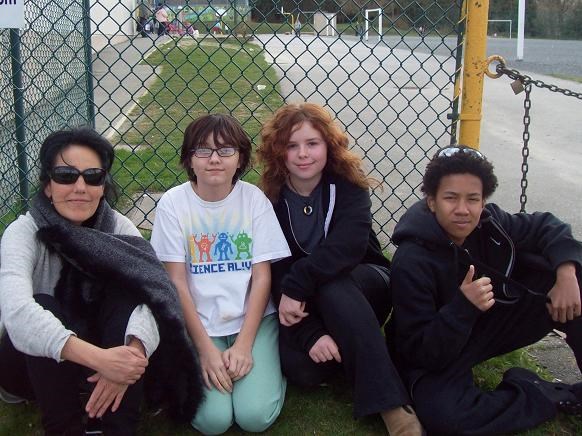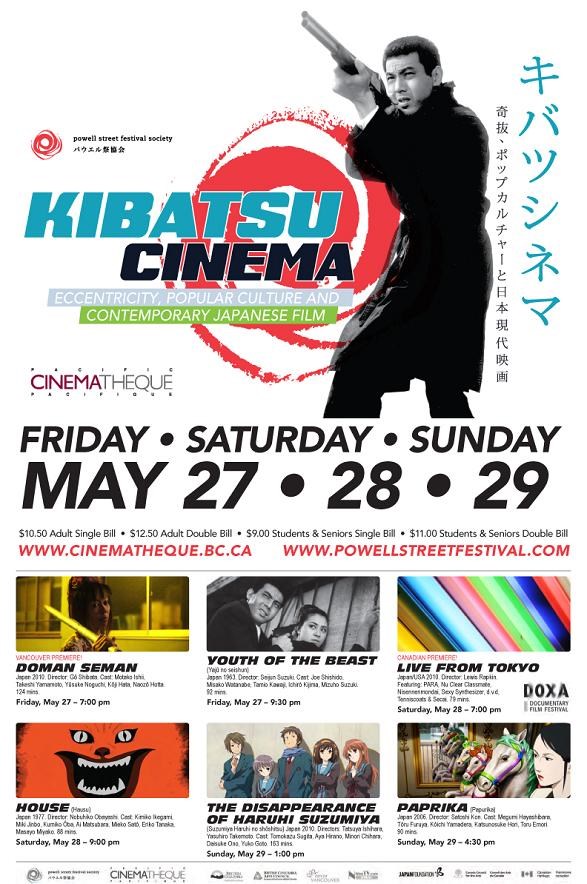She's known mainly as the punk movie girl - the director behind Vancouver's punk music history documentary Bloodied But Unbowed. We first interviewed Susanne Tabata on the eve of BBU's premiere at DOXA 2010. As a member of the Powell Street Festival programming committee, her involvement with Vancouver and film also extend to projects like Ohanashi: Stories of Our Elders which Susanne designed, wrote, produced and directed as a 10 part ethnography series for the Japanese Canadian National Museum (based here in Burnaby). Most recently, Susanne has curated and is ready to present the 3rd installment of Kibatsu Cinema which opens tonight and runs all weekend until Sunday at the good 'ol Cinematheque.
A punk music documentary and a film festival featuring an old Yakuza flick from the 60s, psychedelic gore, anime and beyond may seem to be cut from 2 different cloths. Susanne talks about those 2 endeavors, the selection process for Kibatsu and about the help she got from a special crew for one of the selections below:

Photo: Randy Rampage
Q: So, can you talk about the transition or difference between BBU to curating a Japanese film fest? Most people might think the 2 are really different? Are they?
A: Everything is about respecting the material. Curating film must respect the integrity of the filmmakers. Making documentary film must respect the integrity of the subjects. Both are work. Curating is a more civilized process than making a film. Documentary filmmaking arguably involves more creativity, risk, interdependence, and sacrifice.
Q:Tell me about the selection process for the 6 flicks?
A: I wanted selections that prevent you from falling asleep after a long day of work or living. When in doubt, ask, and I did. Chris MaGee whose the J-film guru in Canada & Dorothy Woodend from DOXA are two people who digest film - all the time. This is their game and they do it very well. They gave me some leads. Chris was key to providing curatorial support throughout the process.
3 of 6 films are premieres so let's talk to them.
The kids picked the big anime! The Disappearance of Haruhi Suzamiya was chosen by my friend Deanna ( gal of Jon West ) Vernelli's kid Una and her buddies Avy & Zuki in the DTES. They google and you tube consistently, doing research on Japanese films. Were it not for them, I wouldn't have continued with the process. Their enthusiasm was genuine and inspiring and ultimately resulted in a blockbuster film coming to Vancouver.
L-R: Susanne, Avy, Una, Zuki

Photo: Deanna Vernelli
Live From Tokyo is a film about the Tokyo Indie Music Scene. It's not made by a Japanese filmmaker but the subject material - though presented in a straight forward style - is very important on a Kibatsu music level. We are honored to have that documentary screen here. There is a music tour in Canada of Tokyo bands called NextMusicFromTokyo. Their tour director is Steven Tanaka and will be in attendance for the screening.
Doman Seman is the quintessential Kibatsu film - "It's a nihilist tour de force attacking the conventions of 20th century greed and human chaos," she writes. "Go Shibata is an indie cult hero. Having paved the way with Late Bloomer - the film about the handicapped serial killer who seeks revenge after his heart is broken by going on a killing spree. Doman Seman pushes the boundaries further with a mash up of music (ska/thrashmetal) and riveting rage against society."
Seijun Suzuki (Youth of the Beast director) is a must because Suzuki took so much flack from the studio and foraged a cinematic style in gangster film.
Satoshi Kon (Paprika) because it was his last flick - and everyone loves stories about dreams.
Hausu or House is a must-see 1977 cult classic and it's a great film.

Image: Steve Chow/Scott Beadle


